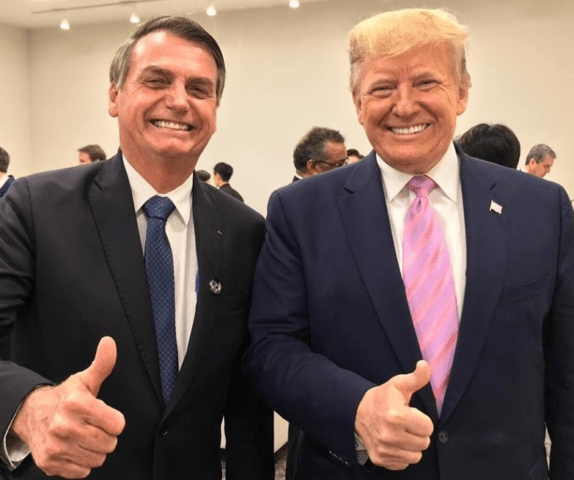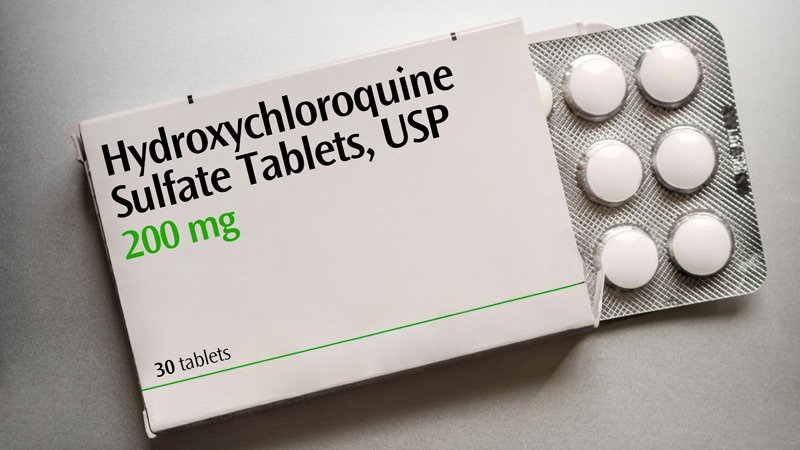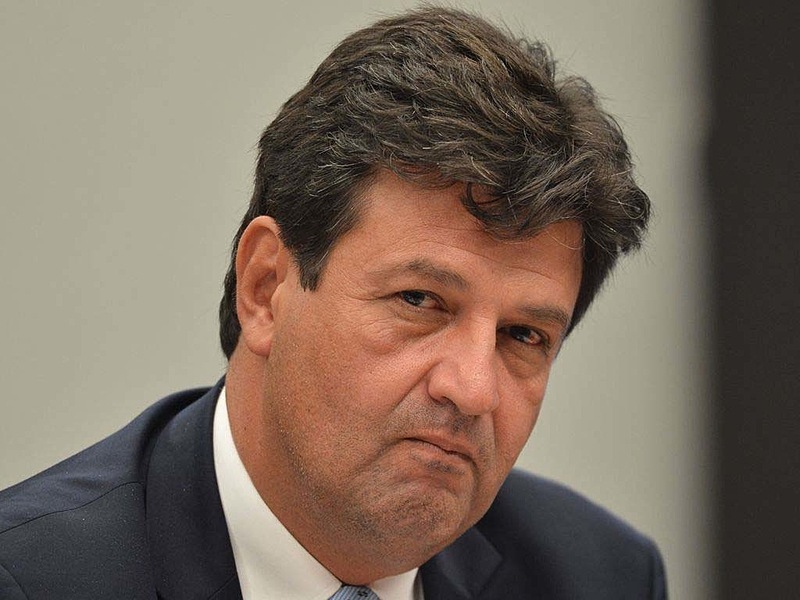RIO DE JANEIRO, BRAZIL – Scientists from all over the world are racing against the clock for a cure and a vaccine for the novel coronavirus. For now, nothing definitive on the front but experimental therapies, some of them considered promising, but still lacking sufficient studies to be considered for general recommendation.
Among them is the use of chloroquine or hydroxychloroquine, drugs to fight malaria, arthritis and lupus, in patients with Covid-19. In Brazil -and in the US- the topic is not only scientific: it has fostered a political clash and become a weapon in the “cultural war” of both polarized countries.

Both Jair Bolsonaro and Donald Trump have decided to become front-line advocates of the substances, even if the technical departments of the governments they command do not endorse the recommendations with the same emphasis.
The experts’ greatest concern, there as here, is that early disclosure of any possibly positive results will lead to self-medication or indiscriminate use before all risks are fully addressed.
In Brazil, President Jair Bolsonaro, who is completely against social isolation measures to fight the spread of the virus, has insisted on the issue and is already taking for granted the success of using the drug to treat the Covid-19 disease.
Speaking on Wednesday in a national network, the President said he had reached an agreement with the Prime Minister of India, Narendra Modi, for Brazil to continue receiving raw material for the production of hydroxychloroquine.
“So that we can treat Covid-19 patients, as well as malaria, lupus and arthritis,” he said. On the other side of the debate, there is a group of scientists and doctors, including Health Minister Luiz Henrique Mandetta, who are calling for caution and are trying to expedite research to reach a safer conclusion regarding the generalized use of these drugs in the pandemic.
Mandetta has been saying that more time for research on the drug is necessary, although he has already released the substance for treatment of patients in advanced and intermediate stages of the disease. As a rule, doctors in Brazil are authorized to prescribe chloroquine and hydroxychloroquine to people with coronavirus provided there is formal patient consent.
On Wednesday, the Minister again considered that the substance may produce still unknown side effects, particularly in the elderly and in those who have not been tested for Covid-19 and may be suffering from other conditions.
“Will it protect or will they [elderly] have cardiac arrhythmia, need ICU [Intensive Care Center] and have acute myocardial infarction?”, he asked. The Minister said he asked the Federal Medicine Council to take a position on the substance’s effectiveness by April 20th.
In Brazil, there are two studies underway on chloroquine and hydroxychloroquine, analogous drugs, recommended for the treatment of malaria, rheumatism and lupus. One of them is the Covid Brazil Coalition, coordinated by Albert Einstein Hospital, Sírio Libanês HCor and BRICNet, a network that carries out studies in the area of intensive care medicine.
The other is coordinated by Fiocruz (Oswaldo Cruz Foundation) and although it has not yet been completed, preliminary results suggest that the death rate of those who used chloroquine in treatment is the same as those who did not. Both studies are being monitored by the Ministry of Health and are part of a set of nine ongoing research studies on treatments for the disease.
However, according to an ANVISA document, a number of international publications already point out that the drug may be capable of acting against the coronavirus, preventing its replication in the organism. Nevertheless, the same document warns that the borderline between therapeutic and toxic doses of the drug is narrow. Therefore, conclusive studies are still required.
“We do not know if there is a group at higher risk [to the adverse consequences of the drug], for instance,” says Antônio Carlos Lopes, president of the Brazilian Society of Medical Clinics and full professor of the Paulista Medical School. “But I’ve never seen any side effects. I’ve been prescribing this drug for 40 years and I’ve never recorded any adverse effects”.

But Denizar Vianna, secretary of Science, Technology and Strategic Health Supplies of the Ministry of Health, stressed during a press conference that the main side effect of both drugs is the potential to cause cardiac arrhythmia.
“The heart is a bomb that depends on the activation of its own electrical system. This drug can produce an increase in one of these electrical phases of the heart and provide a favorable environment for an arrhythmia that can be potentially fatal,” he said this week.
Despite the absence of conclusions, the government has already been mobilizing to increase the production of the drug, while taking steps to avoid self-medication and guarantee its supply. As of March 20th, both chloroquine and hydroxychloroquine required a double prescription to be purchased at drugstores.
The measure will be particularly useful so that patients who already use the drug are not left unattended if there is a mass demand in pharmacies. In parallel, the chemical laboratories of the Armed Forces have announced that they are increasing the production of chloroquine, which may reach 500,000 pills a week. And the Ministry of Health has already announced the distribution of the drug to the states.
According to the São Paulo Secretary of Health, José Henrique Germann, the state received 200,000 pills that have already been distributed to hospitals.
Doctors linked to opposition targeted
Despite the worldwide effort to find scientific conclusions about the drug, Bolsonaro continues using the potential for a treatment for the disease as political ammunition.
“For 40 days I have been talking about the use of hydroxychloroquine in the treatment of COVID-19. I have always tried to take care of people’s lives first, but also by worrying about preserving jobs. I have made contact with dozens of doctors and heads of state in other countries over this time,” the President Tweeted on Wednesday.
“More and more the use of chloroquine is appearing as something effective. Two renowned doctors in Brazil have refused to divulge what cured them of COVID-19. Would these be political issues, since one belongs to the team of the São Paulo Governor?”, he said, in reference to the management of his political opponent, João Doria.
The President’s attacks had two clear targets. These were two of the greatest medical big guns in the country, Roberto Kalil Filho, cardiologist at the Sírio Libanês Hospital, and infectologist David Uip, coordinator of the São Paulo Coronavirus Contingency Center.
Both were recently cured of Coronavirus. Kalil Filho was discharged on Wednesday after a ten-day hospitalization. On the same day, he said that he used hydroxychloroquine after one of the doctors treating him proposed its use. He pondered, however, that the drug was only one of those he used to be treated, along with others, and that he does not intend to influence anyone’s treatment.

Kalil’s statement further leveraged the provocations against David Uip, who had already been pressured to tell if he had used the drug. Returning to work this week after 15 days away, and knowing that Bolsonaro’s publication on Twitter was about him, Uip argued.
“President, respect my right not to disclose my treatment,” he said during a press conference on Wednesday in São Paulo. “There is no relevance in what I took or did not take. “What is important is that I did not self-medicate. Everything else is absolutely personal”.
Uip, who was eventually treated by Kalil before the cardiologist became ill, said he would not disclose his treatment, an entitlement of any patient. On social media an alleged prescription of chloroquine given to a patient by Uip’s clinic was even published.
The doctor confirmed the veracity of the document, stating that the prescription would have been leaked by someone in his office. At the press conference, however, he stated that he will take “legal and appropriate measures to this invasion of my privacy”.
In any event, the issue stirs up virtual tensions in favor and against Bolsonaro, or the drug, and this in itself, is not a negligible side effect on the Bolsonarist modus operandi. In the US, political analysts argue that Trump is following his usual script: to cling to an “optimistic” and “anti-system” view, this time in relation to the pandemic.
If the drugs prove to be effective, the US president may say that he has anticipated the experts “of the system”.
If it fails to work, the White House occupant has experience only in shifting the focus of the conversation and ignoring the preceding campaign. It would not be the first time that Bolsonaro has followed his script.

